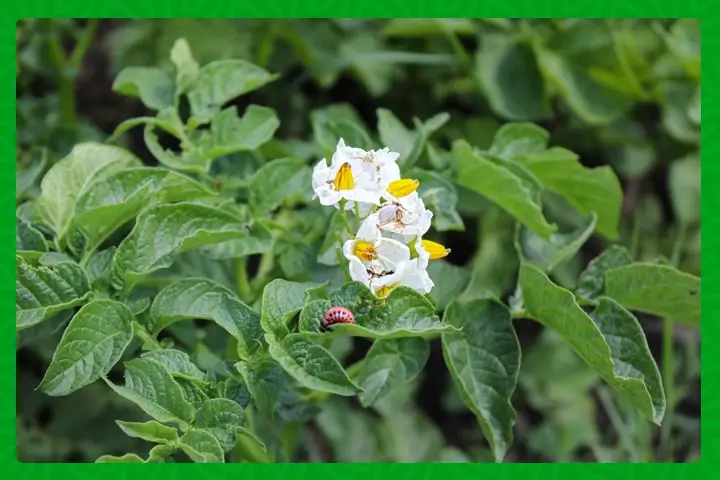
The world faces a critical juncture where agricultural innovation becomes paramount. In a bid to salvage plummeting honey production and combat the devastating impact of pesticide use, scientists are turning to genetic modification. The advent of genetically modified (GM) potatoes, specifically engineered to resist late blight disease without the need for pesticides, emerges as a beacon of hope in addressing both agricultural and ecological crises. In this article, we delve into the potential of GM potatoes to revolutionize farming practices and mitigate the honey crisis, focusing on Rwanda as a key case study.
Unveiling the Crisis:
Late blight disease, a menacing affliction targeting potatoes and tomatoes, poses a significant threat to global agriculture. Its rapid spread in fields not only jeopardizes crop yield but also triggers the rampant usage of pesticides, exacerbating ecological imbalances. The resultant decline in bee populations, vital for pollination and honey production, amplifies the urgency of finding sustainable solutions.
Genetic Engineering: A Game-Changer:
Enter genetically modified potatoes, meticulously crafted to withstand late blight disease through genetic manipulation. Scientists have ingeniously integrated DNA from wild potato varieties, endowing these crops with inherent resistance to the blight. In Rwanda, the prospect of adopting such innovative crops has gained traction, with the Rwanda Agriculture and Animals Resources Board (RAB) poised to commence confined trials in the Northern Province.
The Dire Consequences of Pesticide Use:
Pesticides, once hailed as saviors of crops, have inadvertently catalyzed ecological havoc. The indiscriminate application of these chemicals, necessitated by late blight infestations, exacts a heavy toll on bee populations. Jean Damascene Ntaganda, head of Rwanda’s beekeepers’ federation, laments the precipitous decline in honey production, attributing it to pesticide-induced bee fatalities. Shockingly, regions like Nyamasheke District have witnessed a staggering 90% reduction in honey output, underscoring the severity of the crisis.
A Beacon of Hope for Agriculture:
Amidst this gloom, the advent of GM potatoes heralds a new dawn for agriculture. By obviating the need for pesticides, these crops offer a sustainable alternative that fosters ecosystem resilience. Athanase Nduwumuremyi, a scientist at RAB, underscores the pivotal role of GM crops in revitalizing farming practices, emphasizing their safety for human consumption.
Elevating Rwanda’s Agricultural Landscape:
Rwanda’s strategic embrace of GM technology signals a paradigm shift in agricultural policy. By prioritizing confined trials for GM potatoes, the nation paves the way for enhanced crop resilience and amplified honey production. The concerted efforts of RAB and Rwanda Environment Management Authority (REMA) underscore Rwanda’s commitment to pioneering agricultural innovation.
The Global Imperative:
The significance of GM crops transcends national boundaries, resonating with the global imperative for sustainable agriculture. International initiatives spearheaded by organizations like the International Potato Centre seek to disseminate GM technology across East Africa and beyond. With bioengineered potatoes poised to revolutionize agricultural landscapes, the potential for widespread adoption holds promise for addressing global food security challenges.
A Call to Action:
In confronting the honey crisis and safeguarding agricultural sustainability, collective action is imperative. Governments, agricultural stakeholders, and communities must rally behind initiatives that prioritize ecological integrity and agricultural innovation. As Pacifique Nshimiyimana, an agriculture scientist, aptly notes, GM crops represent a tangible solution to the looming ecological and agricultural crises.
The intersection of genetic engineering and agricultural innovation offers a glimmer of hope amidst ecological turbulence. In Rwanda and beyond, the advent of GM potatoes stands poised to transform farming paradigms and mitigate the honey crisis. As we navigate the complexities of a rapidly evolving agricultural landscape, embracing sustainable solutions becomes paramount. In the saga of agricultural evolution, GM potatoes emerge as protagonists, charting a course towards a greener, more resilient future.
Original article written by Michel Nkurunziza
Stay updated with the latest farming tips and agriculture industry news from Africa by subscribing to our newsletter. Don’t miss out on valuable insights and updates. Follow us on Twitter, LinkedIn, and Facebook to join our farming community and stay connected with us.



















